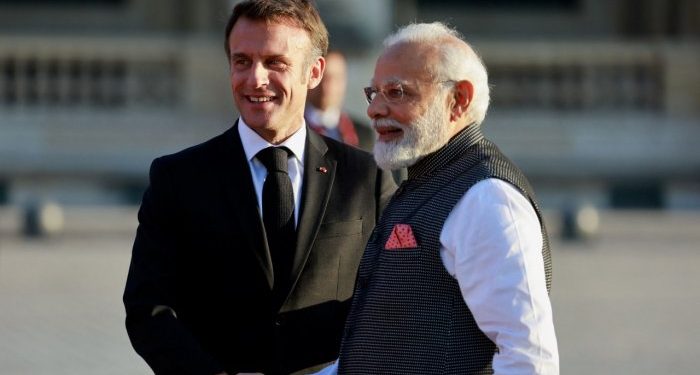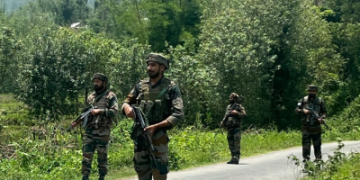Three weeks after a state visit to Washington, Prime Minister Narendra Modi completed a visit to Paris 14 July. It would be wrong to term the PM’s hurricane foreign tours as international recognition of Modi’s diplomacy as his party, the BJP, has been trying to project with the Lok Sabha polls a few months away. The red carpet the Biden administration had rolled out for the PM is being used in domestic politics to refurbish the ruling party’s sagging image tarnished by wrong handling of the economy and exacerbation of religious and social conflicts under the Modi regime. Fact is the trips to the US and France are rather a ratification and acknowledgement by the West of India’s geopolitical weight, especially in counterbalancing China’s challenge. Probably, the West perceives India as a tactical and populous country that is badly required for providing foot soldiers in the event of a Ukraine like situation in Asia, if China’s ambitions keep growing.
The West’s Sino-phobia has assumed such proportions that criticism of Modi’s autocratic tendencies and pseudo-nationalistic rhetoric of his party has been muted. This was evinced when US President Joe Biden did not make any public statement on religious conflict and social tension during the 9-year-long rule of Modi despite vociferous demands from many US organisations and former US President Barack Obama to do so. Similarly, France’s decision to make Modi the guest of honour at the Bastille Day celebrations on 14 July is being questioned in France on the ground that Modi represents Right-wing politics in India that is inimical to liberal thinking and free speech and as such not in keeping with the symbolism of the occasion. The French government, however, tried to gloss over the dichotomy with the argument that the honour was a justified tribute to the Indian troops that had taken part in the First World War as celebrated by the magnificent parade of 240 Indian servicemen on the Champs-Elysées. But, no one is in doubt that this was an eyewash. The cherry on top of this cake was the purchase of drones from the US and few more Rafale jets and other weapons from France at exorbitantly high prices.
France’s own huge commercial interests, just as America’s, have prompted them to leave the question of whether a government and its leader that pits the Hindoo majority against the Moslem and Christian minorities is acceptable or not to intellectuals, social activists and the media. But, this is a great pitfall of democracy which endorses the West’s attempts to thwart the ambitions of authoritarian regimes like Russia and China, but lets it cohabit with powers that are far from blemishes.
This is because the stakes of trade and commerce are too high. Modi’s visit was crowned with a preliminary agreement on the sale of 26 Rafale Marine aircraft – the version compatible with aircraft carriers – and three Scorpene-class submarines, to supplement the 36 conventional Rafales and six submarines previously sold to India. This agreement, along with cooperation projects in space, energy and environment sectors, was also accompanied by a roadmap for French-Indian cooperation in the Indo-Pacific. Apart from the economic engagements, India’s Western partners are courting Modi because they need India, rather than any individual leader whatever his political affiliation, in a region where their priority is how to deal with the rise of Chinese power. This is the reason why New Delhi in the changed geopolitical matrix has become their ally numero uno.
Despite the propaganda, the process of strengthening economic and business ties between India and France started a quarter of a century ago. Of all the security partnerships that India has now with other countries, the one with France has been the most enduring. In 1998, France became the first country with which India established a strategic partnership, which has since been accorded to more than 30 countries. For decades, France and India have collaborated on space and civil nuclear programmes. From the 1960s, France provided technical assistance for the construction of the Sriharikota launch-pad. ISRO and the French Space Agency (CNES) have been carrying on various joint research programmes and collaborating in satellite launches.
Over the years, India and France have become reliable defence partners and this is expected to continue. France is the second largest supplier of arms (after Russia), accounting for 29 per cent of India’s arms imports.
Suppressing facts and glorifying the Modi regime despite its track record of systematically silencing and intimidating critics and rival politicians are the linchpin of today’s politics. The hype over Modi’s recent foreign tours and diplomatic engagements seem another attempt to project him as a leader of world stature while India burns and drowns.






































